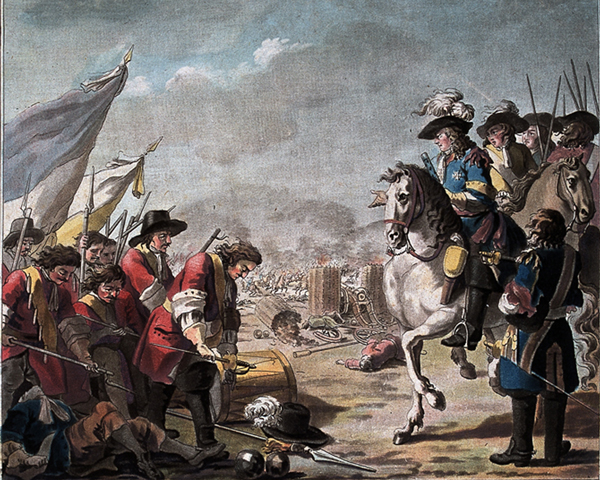Date: September 23, 2023
It would be impossible to discuss the past century of European history without mentioning Germany and its drastic influence not only on the outbreaks of war but also on the face of European politics. However, as we entered the 20th century, Germany itself was still a relatively new and young country, having been formed just 29 years earlier. The man responsible for said formation: Otto von Bismarck. This leads me to…
On this day 161 years ago, Otto von Bismarck was appointed prime minister of Prussia.
Otto von Bismarck was a Prussian politician who went on to serve as the first chancellor of the German Empire. However, he is most notably recognized as the mastermind behind the unification of Germany.
Throughout his early career, Bismarck held a series of ambassadorships that provided him with invaluable insight into both the complex political relationships between nations and the vulnerabilities of the greatest European powers. It is important to note that Otto von Bismarck was not the first Prussian, or political figure in general, to propose the unification of German states. He was also not the first to take action towards unification. He was, however, the only one who succeeded. His appointment as Prime Minister opened the door for him to access the power and resources necessary to achieve such a feat as unification.
His success in unification can be attributed to his use of warfare and the subsequent exploitation of German nationalism that arose from battlefield victories.
Only three years after his appointment, he began the first of a series of wars aimed at establishing Prussian dominance throughout Europe. The biggest threat to his ambitions of controlling the northern German states was Austria, as both nations sought control. Bismarck, however, displayed his military cleverness and had already prepared the army for war. Consequently, the war against Austria was quickly won. It was at this point that he recognized the need for one final war to unite the southern German states, which was achieved through the Franco-Prussian War. Through his political and social prowess, Bismarck united the German states to fight and ultimately defeat France in 1871. This marked the birth of the German nation, with the German states under the Prussian crown.
already prepared the army for war. Consequently, the war against Austria was quickly won. It was at this point that he recognized the need for one final war to unite the southern German states, which was achieved through the Franco-Prussian War. Through his political and social prowess, Bismarck united the German states to fight and ultimately defeat France in 1871. This marked the birth of the German nation, with the German states under the Prussian crown.
His focus then shifted to consolidating and strengthening Germany. Bismarck proceeded to establish Europe’s first modern welfare state by implementing a national healthcare system, accident insurance, and old-age pensions. His political practice, realpolitik, emphasized principles grounded in practical rather than moral considerations, arguing that national success depended on prioritizing the state above all else. His creation of alliances between Germany, Austria-Hungary, and Russia allowed for a balance of power and brought peace to settle over Europe for the first time in decades.
His immense success in the political sphere can largely be attributed to his manipulation of democratic mechanisms and political savvy. Bismarck established Germany as one of Europe’s greatest powers, ultimately setting the stage for the growth of national tensions which would soon explode into World War I.
Sources
Barkin, Kenneth. “Otto von Bismarck.” Encyclopædia Britannica, Encyclopædia Britannica, inc., www.britannica.com/biography/Otto-von-Bismarck/Prime-minister.
“Otto von Bismarck – Biography, World Wars & Facts.” History.Com, 7 June 2019, www.history.com/topics/european-history/otto-von-bismarck.


 he be permanently removed from the French line to the throne thereby preventing the union of France and Spain. The war prevented France domination, which if allowed, would have drastically altered history. Stop for a moment and imagine what the world would look like if France and Spain were unified. How exactly would have history been altered? Would the nation remain a superpower or crumble due to religious polarizations? What would the unification mean for European politics? Much of what fascinates me about history, and this war in particular, are the possibilities of the “what if?”
he be permanently removed from the French line to the throne thereby preventing the union of France and Spain. The war prevented France domination, which if allowed, would have drastically altered history. Stop for a moment and imagine what the world would look like if France and Spain were unified. How exactly would have history been altered? Would the nation remain a superpower or crumble due to religious polarizations? What would the unification mean for European politics? Much of what fascinates me about history, and this war in particular, are the possibilities of the “what if?” left France, for the first time in over a thousand years, without a central monarch. The unstable government struggled to handle the rising pressures from surrounding countries which were eager to invade France. France was essentially drowning in its own chaos, and Maximilien Robespierre recognized this as a dangerous weakness and spearheaded the Reign of Terror.
left France, for the first time in over a thousand years, without a central monarch. The unstable government struggled to handle the rising pressures from surrounding countries which were eager to invade France. France was essentially drowning in its own chaos, and Maximilien Robespierre recognized this as a dangerous weakness and spearheaded the Reign of Terror. immediate new rule where harsh actions would be taken against those suspected of being enemies of the state. The promises of harsh actions culminated in over 50,000 people being executed by guillotine over a ten-month period.
immediate new rule where harsh actions would be taken against those suspected of being enemies of the state. The promises of harsh actions culminated in over 50,000 people being executed by guillotine over a ten-month period.